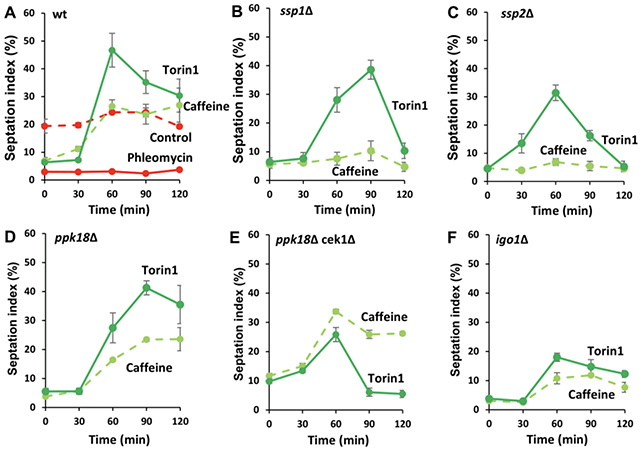We know caffeine is good for an alertness boost first thing in the morning or during an afternoon lull, but researchers have also linked the compound to healthy aging – and a new study takes a close look at some of the cellular mechanisms responsible for that link.
Scientists from Queen Mary University of London (QMUL) and the Francis Crick Institute in the UK used fission yeast as stand-ins for human cells, analyzing how doses of caffeine affected the lifespan of the cells and their ability to withstand damage.
"These findings help explain why caffeine might be beneficial for health and longevity," says biochemist John-Patrick Alao, from QMUL.
"And they open up exciting possibilities for future research into how we might trigger these effects more directly – with diet, lifestyle, or new medicines."
Previous research found that caffeine could operate a biological switch called TOR (target of rapamycin), which helps regulate the growth of cells in response to food and energy availability.
With the latest experiments, the researchers determined that caffeine doesn't interact directly with TOR. Instead, it controls it through the AMPK pathway, which works kind of like a fuel gauge for cells.

We already know that AMPK takes care of some vital jobs in terms of keeping cells running and helping them resist wear and tear more effectively. Now we also know that caffeine has an effect on it.
"When your cells are low on energy, AMPK kicks in to help them cope, and our results show that caffeine helps flip that switch," says geneticist and biologist Charalampos Rallis, from QMUL.
With caffeine operating the TOR lever through the AMPK enzyme, cells are affected in three different ways, the researchers found: in how they grow, in how they repair their DNA, and in how they respond to stress. That all adds up to cells that stay healthier for longer.
When the researchers interrupted the genetic chain reaction that caffeine triggers, the cells didn't get all of the same health benefits – confirmation of how the compound is working, and perhaps, how we might be able to utilize it in the future.
The diabetes drug metformin is currently being looked at as a way of keeping us in better shape for a longer period of time, and it too operates through AMPK – suggesting caffeine-based drugs may have a similar effect.
Any kind of medication or treatment is still a long way off however, not least because these findings are from yeast cells rather than human cells. The researchers are still keen to learn more about the precise way caffeine interacts with AMPK and TOR.
What we can certainly say for now is that more and more studies are showing positive effects from caffeine consumption, whether that's losing body fat, protecting against cardiovascular disease, or keeping dementia at bay.
"Direct pharmacological targeting of AMPK may serve towards healthspan and lifespan benefits beyond yeasts, given the highly conserved nature of this key regulatory cellular energy sensor," write the researchers in their published paper.
The research has been published in Microbial Cell.